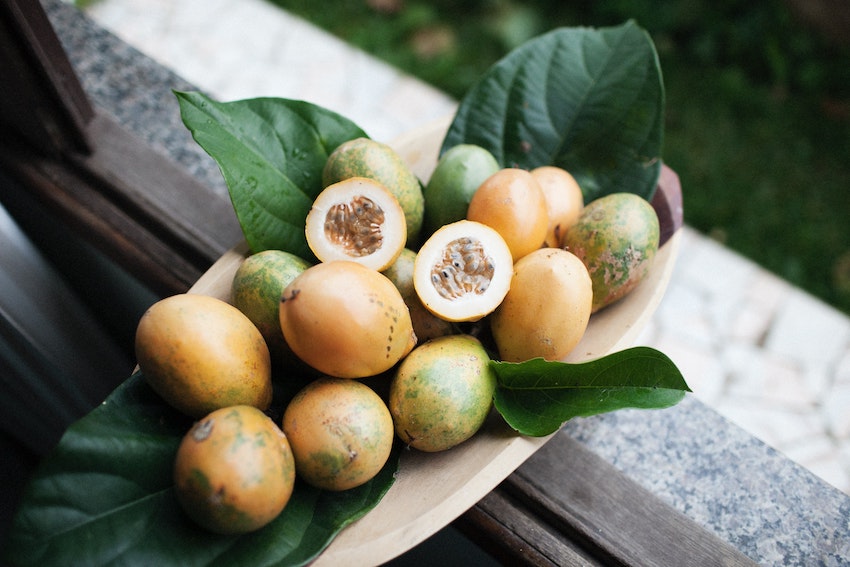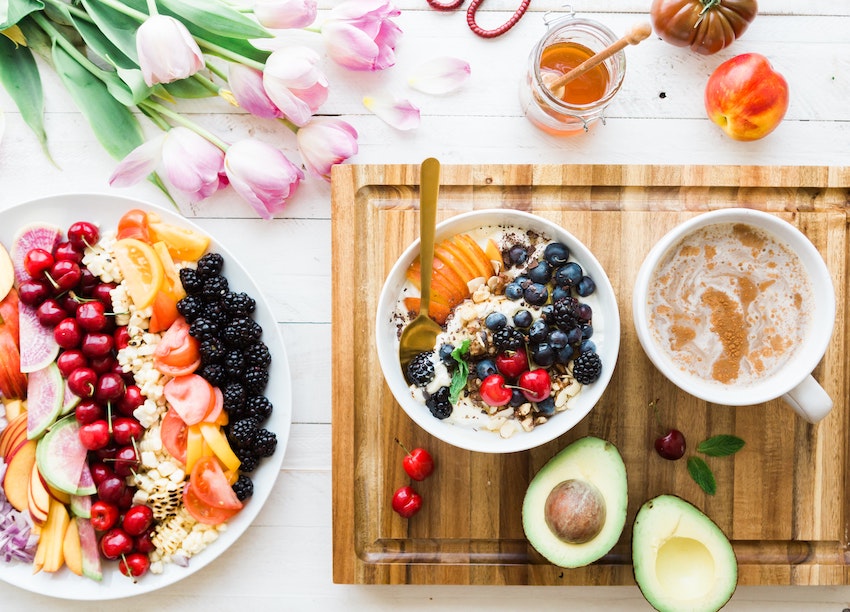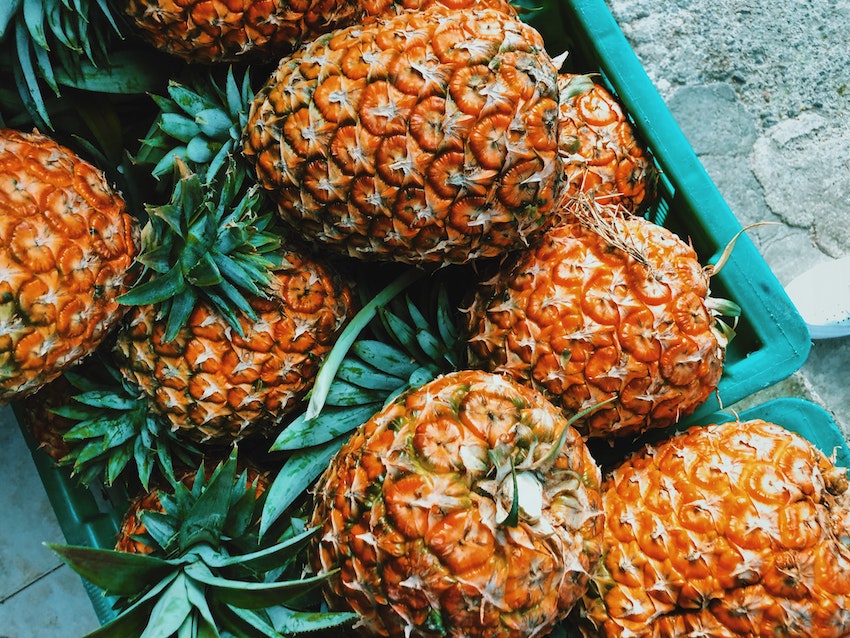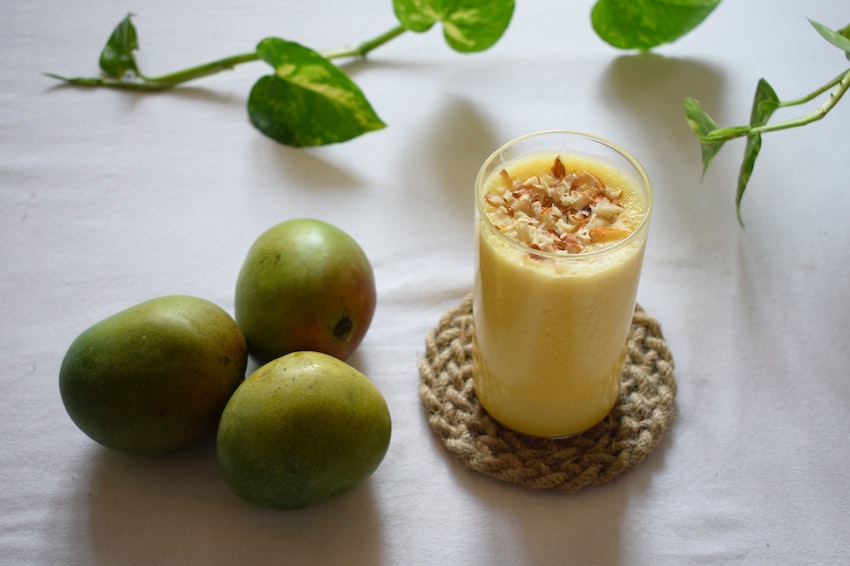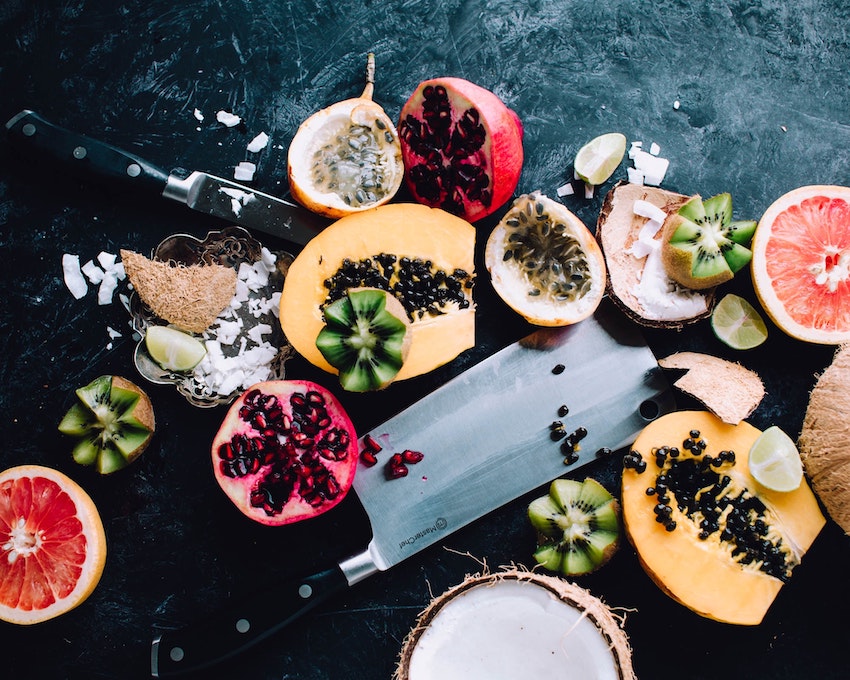It’s tropical season and coming into the summer months is the best time to look at new fruits to introduce into your diet. These are the most popular fruits of this season and their well-documented benefits for children.
PINEAPPLE
It’s November and pineapples are finally in season! To tell if they are ripe, sniff the stem and if it smells sweet, it is the one! Pineapples are rich in Vitamin C, B-6 and magnesium. Since they have a high content of Vitamin C, they are an essential tropical fruit that will help boost your baby’s immune health and help their body absorb iron from other foods.
If you are introducing pineapple to your child’s diet for the first time, try it in small doses to see how their system reacts. Pineapples can be introduced to your baby’s diet from six months old. They work well as a basic mash or even a puree, added to yoghurt or cereal.
Pineapple has been known to:
- Improve hydration. Pineapples have 85 grams of water per 100 grams. This high level of water content not only makes pineapple a juicy fruit but helps to fight dehydration.
- Regulate bowel movement. Pineapple also contains a good amount of fibre to help support healthy bowels and keep constipation at bay.
- Help support a healthy heart. Pineapples contain bromelain, enzymes that have cardioprotective benefits when consumed regularly. Bromelain also has analgesic properties that can help relieve pain or control inflammation.
MANGO
Talking tropical fruits that are in season, mangoes are one of the best fun fruits your child can consume! Named ‘king of fruits’, the mango is recognised as the most popular fruit in the world. When picking the best mango, squeeze them lightly to judge ripeness rather than looking by colour. If they give a little, they will be a good pick.
They are a good texture for babies. Good for babies who might be teething, as they can be frozen and soothe sore gums. As mangoes are full of fibre and digestive enzymes, they will help break down foods and prevent constipation.
There are various benefits for introducing mangoes into your child’s diet. These include:
- Promoting good health. Mangoes contain colourful phytonutrients, compounds that help maintain good health. Their high levels of fibre also promote a healthy gut.
- Improving eyesight. Due to a high level of vitamin A, mangoes help foster good vision as this nutrient prevents multiple eye related issues.
- Great skin. Vitamins A and C present in mangoes have been shown to improve complexion and moisturise the skin.
- Improving memory. Glutamine acid is present in mangoes, an amino acid that assists in brain development and proper functioning.
PAPAYA
Papayas are often thought of as an exotic or rare fruit but have been used for centuries, particularly to treat worm infections. You will find them next to mangoes and pineapples when in season. Papayas should be introduced in small amounts when your child is around seven to eight months old. Caution should be taken when introducing papaya if your child is prone to allergies, so ensure to watch for side effects such as irritations or stomach aches.
There are different benefits associated with papayas, including:
- Healing properties. Due to a high content of vitamin A, papaya pulp offers medicinal properties that may reduce the visibility and burning sensation of skin sores and rashes.
- Preventing macular degeneration. Papayas contain zeaxanthin, a carotenoid which helps protect the eyes from light-induced damage and oxidation. This can help to combat the harsh blue light rays that emanate from devices.
- Preventing allergies. Papayas contain a high level of papain, a proteolytic enzyme which can help reduce pain and swelling, and boost overall health.
AVOCADO
Since smashed avo has become a trend, avocados have been at the forefront of the fruit and veg section. This is a trend you might want to buy into, because the nutritional value of the Hass is worth introducing to your child’s diet. Avocados are easy to prepare, making a good guacamole or addition to a salad and will ripen quickly in the fruit bowl.
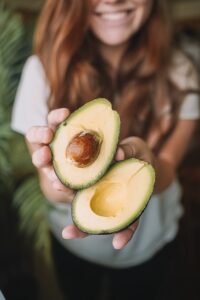
There are various benefits for including avocado in your child’s diet, and it makes a great first food due to its texture and versatility. Some other benefits of avocados include:
- A high level of vitamins and nutrients. Avocados are nutrient-dense and contain a good amount of vitamin C and folate. They also have vitamin E and vitamin K, vitamins helping to form a healthy heart, immune system and preventing blood clotting.
- Healthy fats. Avocados are rich in monounsaturated fatty acids and polyunsaturated fatty acids. These are good fats which promote positive heart health and support the absorption of good nutrients.
- They are sodium and sugar free. Avocados also have a good amount of fibre which will help avoid constipation.
PASSIONFRUIT
Passionfruit is a healthy option for babies when ripe. It is a good alternative to unhealthier desserts as it is still sweet and tart and goes well in yoghurts or smoothies. They also hold a low GI value, meaning they will not cause a steep increase in blood sugar after eating.
There are several benefits of including this tropical fruit in your diet. The most notable include:
- Good bone health. Due to a high level of minerals such as iron, magnesium, copper and phosphorus, eating passion fruits may improve bone strength and density. A high content of iron also helps prevent Anaemia.
- Supporting the immune system. Passion fruits are rich in antioxidants such as carotenoids and cryptoxanthin and vitamins A and C. The seeds in particular contain lots of these antioxidants which can promote positive heart health.
- Anti-carcinogenic properties. The antioxidants present in passion fruits help to eliminate free radicals, which mutate the DNA of healthy cells into cancerous cells.
- Reducing anxiety and stress. High levels of magnesium present in passion fruits have been shown to minimise triggers of anxiety and stress.
